Oregon Hockey: Interview with Coach Jack Hyman
While all the ice may be melted because it is Summer time Hockey Season never stops here at Addicted To Quack as I was fortunate enough to be joined by the head coach of the Oregon Ducks hockey team, Jack Hyman. Jack sat down with me for close to 45 minutes to talk about the program and some of his coaching philosophies. You can listen to the interview here:
You can help support the team by:
- Attending home games. The first home games will be the last weekend of September before the Semester starts the full schedule will be released closer to the season. Jack mentioned off air that transportation to the home games can be arranged from Rennie’s.
- Purchasing Jersey’s at the games or pop-up sales. Follow the team on instagram for pop up sale announcements throughout the season
- Donating at this link
- Becoming a corporate sponsor
Here is the transcribed version of Jack and I’s conversation.
Thomas
Hello everyone and welcome to a special edition of It Never Rains on this podcast. I’m your host Thomas, the hockey writer at Addicted to Quack. It’s a website. Today we’re very lucky as I am joined by the head coach of the University of Oregon Ducks hockey team, Jack Hyman. Jack, thank you so much for taking some time to sit down with me today. How is everything going?
Jack
Everything’s going well. It’s the off season and eagerly awaiting these next few months to pass so we can get back at it. So, I always like a break after the season ends, but after a month off, I’m very much ready to get back out there. So very eager, but summer’s going well.
Thomas
That’s great to hear that the summer is going well, but it’s also great to hear that you’re eager to get back on the ice, just like a true hockey coach, can’t keep him away from his craft and the rink for too long.
As we were talking a little bit just before we started recording, I think it’s a great opportunity to help the listeners and the viewers of our website kind of understand all the commitments and the hard work that you have to go through during the season to make sure that this club hockey team runs smoothly. I think maybe a good place to start would be, could you maybe just take us through your average week in a game week during the season? What does that look like for you leading up to a weekend series of games?
Jack
Yeah. We practice three times a week in the morning before the kids have class. Our schedule this coming year is going to be Tuesday, Wednesday, Thursday practice in the morning from 7 30 AM to 8 30 then the kids go off to class they’re doing their thing and I’m doing my thing. And, it’s funny, you’re always coaching the current season, but then you’re always also looking ahead to the next season. Like we start scheduling games for the following season, about one month into the current season.
And then you start recruiting probably two months in. I’ll go home and I’ll watch film on other players or I’ll watch film on the team that we’re playing that weekend. Cause I’ll get that ready for the film session coming up, or I’ll be reaching out to coaches of players that I want to recruit. Or I’ll be reaching out to coaches in the league and just getting a feel for what their schedule looks like. You know we’re in a little bit of a different situation because we’re independent because we’re way out in the Pacific Northwest and no one’s really near us. It’s not really easy to get into a conference.
There’s the ACHA D1 as a whole, which has about 75 teams. We’re adding a couple for this year, but then that’s all broken down into conferences. There’s a West Coast hockey conference, which would be fitting for us, but we sort of have to do our due diligence and show up on the ice in order to get invited by all the other coaches.
The fact that we’re independent means that I create the schedule from scratch. We want to have anywhere between 25 and, and 30 games, probably that’s what most teams do. All the other teams that are in a conference have a commissioner and they get 20 or so games sort of thrown right off the bat, 10 home, 10 away. So they only have to find another five or 10. Meanwhile, I start at zero and have to find the 25 to 30 from scratch. Probably the hardest part about my job. No one wants to travel, ourselves included, but sometimes you have to travel a little bit more than you host, especially in the early days to, to ACHA D1, which we are. We’re just doing our, our due diligence in that regard.
But then we have workouts Monday, Tuesday, Wednesday, as a team, we have a video and a team meeting every Wednesday where again, I’ll go over our games the previous week or I’ll scout the opponent that we’re playing and we’ll talk about that as well. Throughout the week, I’ll have meetings with the players, whether it’s the leadership group or whether it’s one-on-one with players just to talk about what I see, what they see. We’ll pull up some of their film and go over it one by one. And if we’re home, we’ll play Friday and play Saturday. If we are on the road, we typically leave on a Thursday afternoon evening so the kids don’t miss as much class as they ordinarily would. If we left earlier. We’ll play Friday night in whatever town we’re playing in. We’ll play Saturday night and then early airport Sunday morning just to just to get back and it starts all over again on Monday. We’ll have an off weekend here or there where the kids can relax and get it and hopefully the football team is home in town so they can all enjoy doing that together. We did that a couple times last year and it looks like that’ll be the case for this year but for the most part it’s go-go-go until Christmas break and then we reconvene after that and then we go through January and February and hopefully into March where the national tournament takes place. So that’s the goal for this upcoming season. But when I’m not dealing with the team in the morning and the evening with the workouts and the practices, it’s doing anything I can to help the team. It’s a combination of recruiting for next year, it’s scheduling for next year, it’s finding donors, finding sponsors, because we pay for everything ourselves. The players have to pay to be on the team. Unfortunately, that’s the way club hockey works. It’s sort of pay to play. They all pay dues, and we sell jerseys. We’re trying to set up other areas around Eugene and campus to sell as many jerseys as we can, reaching out to companies that might want to sponsor us. We have a sponsorship packet that I helped create with some of the other guys and we send that out to any companies that might be interested. Working on the website with our marketing team, talking to our social team about what Instagram posts we want to get out there. In a nutshell, anything and everything that can make the team bigger and better both on and off the ice is sort of a hat that I wear on a daily basis.
Thomas
Just like any other college sport the head coach wears a lot of hats, especially with you having the extra commitments of both scheduling and gathering up donors to keep the team afloat. It’s like I said, lots of hats to wear. And I think you did a good job explaining that it’s pretty much nonstop just because there’s always something in one of these different areas pulling you somewhere.
Jack
Yeah, I’m sure I forgot a handful of things too. Things come up, you handle it, you deal with it constantly in contact with the club sports office as well about everything. I’m sure there’s a handful of things that I forgot to mention, but yeah, it’s nonstop, but that’s what makes it fun and every day is a little bit different.
Thomas
You did mention the scheduling aspect, and I think if people aren’t familiar with the team, might be a little confused by that and we can talk a little bit more. Basically Oregon was in an affiliated conference at the ACHA level, you[Jack] might not come out and say this, but I just will. They were too good, so they had to move up to division one level. And unfortunately there was no other division one conference in the Pacific Northwest at that level. I explained it to some of the listeners this year. It’s like the ACHA is kind of like, college football. If college football’s conferences still made geographical sense. Unfortunately, when you move up, when you move up a division you are therefore kind of forced to go independent. And that just gives you another task to take care of. And I think no better example of that was the fact that you guys played you played the long-awaited home and home series against Alabama. I know football people have been asking for that football series for a long time hockey did that just this past year so when you talk about not wanting to travel at least you guys both kind of made each other’s lives a little miserable having to make that trek but it was a great series for the Ducks.
Jack
And yeah, and just on that note, Alabama will be back in Oregon. They’re going to play us in Bend for our outdoor series that we do every single year.
Thomas
It looks awesome, and I think that’s just a great event for the community. Outdoor hockey events are always a great way to sell the game, and it feels like the event in Bend does a great job of that in the Oregon community.
Jack
Yeah we love going there. It was new to me when I first joined. I’ve been here for two years going on my, my third season now. The first time we were there, it was against Washington. two rivals, despite the conference difference these days, but still two big names and two Pacific Northwest teams. It sells out every year, 1500 fans or so the local news is there. Youth kid hockey kids are there asking for autographs and they do intermission games and they’re on the blue line with us for the national anthem. It’s definitely a highlight of the year and it’s always fun to get a new opponent. As I mentioned, Alabama will be back this season to come play us outdoors. We’re very, very fortunate that we sort of have this in our backyard, so to speak, where we get to do that every year. And then we go back in March during spring break.
It’s like the last week the rink is open and we do a youth camp there that I run and some of my players come as well. So that’s been a good hit for the past two years. So we’re looking forward to expanding on that as the years come.
Thomas
That’s great to hear. You also did talk about how recruiting basically really repicks back up right into the season. Could you maybe explain a little bit of what the recruiting process is like for a coach in your shoes and what are the type of players you’re looking for? How do you scout them? Kind of just high level explain the recruiting process.
Jack
Yeah. So the players that typically do well at the ACHD one level, have multiple years of junior hockey experience under their belt. And, you know, we could talk for three hours about the differences in junior hockey, but there’s a handful of them from, coast to coast. And, know, they’re 17 year olds, 18 year olds, 19, 20. A lot of the players that I recruit, probably 90 % of the guys that I have coming in this year are at least 20, maybe even 21.
They do that because they want to play hockey at the highest level possible. A lot of the guys that I talked to are between ACHA Division 1 schools and NCAA Division 3 schools. That’s sort of the parallel that we like to look for. And then those are the guys that do really well. How I do it is again we pay for everything, right? I can’t go to a recruiting showcase every weekend, even if I wanted to, and if I could.
There’s some in Minnesota that I’ve gone to before over the past two years that have been very helpful for the team and a lot of my players come out of there. I’ll go to one showcase a year because that’s what the budget allows for but aside from that there’s a handful of streaming services for games whether it’s YouTube or flow hockey or black dog hockey there I can watch film and watch games and so I’ll watch games, I’ll watch clips, I’ll look at rosters online and I’ll find coaches contact information. And now that I’ve been here for a couple of years, I have a pretty good network of coaches that I can just email or text and tell them I was thinking about this guy or do you have any guys that are looking for a spot or things like that. and when the season really picks up, I’ll have five to seven recruit calls a day where we talk for 30 minutes to an hour or so just about what the player’s looking for, what Oregon can offer, see if it would be a good fit. We talk about financials; we talk about what the team can offer. We try to cover everything and then really right after that initial phone call, it’s just a matter of keeping tabs on the player so they don’t forget about you. Because obviously I’m not the only one talking to them. So how can I paint Oregon in a good light compared to these other schools and we have some pros and we have some cons just like every other school does. But it’s constantly every couple of weeks, I’m checking in, asking them if they apply and asking them if they have any questions. And then sometimes I talk to their parents because the parents have questions and then some people commit right away. Some people say no thank you and then we move on. And then some players you end up having a conversation with a handful of times a month over a six month span then talk to them in November and they tell you in May or June that, you know, thanks, but no thanks. Or they tell you yes. And then that’s obviously a great feeling and all the work was worth it. But I love the recruiting. It can be frustrating when you don’t get a player that you want, but at the same time, it’s just essentially two hockey guys at the end of the day, talking hockey as, as often as I can. And that’s the same for any player that I’m talking to or any coach that I’m talking to.
A lot of film, a lot of emails, a lot of phone calls, a lot of texting, and then a little bit of travel involved. But I’m still recruiting right now. There’s a couple of players that I’m talking to about next season and they’re just trying to do their own work on their end to see if they’ll come or not. But from November or late October to now, is sort of the recruiting window. It never really stops.
Thomas
Yeah to your point about the players that usually do well at this level being a little bit older. It’s not the typical right out of high school, 18 year olds. And I feel like if you’re at all familiar with the game and you turn on your first ACHA, Oregon ducks hockey game, you’ll see why, because it’s a bit of a throwback to about 10 to 20 years ago with how physical it is. That’s at least what caught my eye is like, Oh boy, these, these boys are hitting. They’re not afraid to hit. This isn’t a soft league by any means.
Jack
Well, they came from juniors where they were allowed to fight and now they can’t fight. So now it’s like, I can’t fight so the closest thing I can do is hit. Not that fighting never happens, but it’s not allowed in the same capacity as it is in juniors or obviously the pros or anything like that. But they got to get their anger and aggression out somehow. I guess hitting is the next best thing.
Thomas
It’s like I said it jumps off the page as a viewer. You mentioned that this is your third year now. It’s the fourth year for the team at this level. Big picture, what would you say maybe is the goal for the team this year? It’s always going to be a bit of a transition. It’s going to take time to transition when you move up a level, but what would you say is the goal for this year, upcoming specifically?
Jack
I think the goal every year, at least for us in the early stages is, there are simple goals like you want to win more games this year than you did last year. You want your ranking to be higher this year than it was last year. We were able to do both of those things in my second year compared to my first year. Continuing to build on those two things, I think you have to have the goal for any team or any program you want to make the national tournament otherwise, what’s the point? Why are we doing this?
And that’s large goal. I try to phrase it to my players as, they create their own history. This team, every team is different from the previous team because there’s new players and changes and all that. No two teams are alike, despite, of course, some carryover as players going through their college years. But every team sort of has the opportunity to make their own history. And this year’s upcoming team has a chance to do a lot of things. We’ve never had double digit wins. Last year we won seven games. Can we win eight? Can we win nine? Can we hit the double digits like I want us to? Can we make the national tournament? That’s never been done before. And if we make the national tournament it’s this team in a sense, at least for Oregon hockey sake goes in the history books of being the first team to ever make the national tournament. And that’s something that you can never take away from them. And that might be small to some people just making it and maybe not winning it all. But at the same time, we are going through a transition phase and we have been since I sort of took over here. You got to start somewhere and it’s returning in the right direction. The goals for this season again for me at least hit double digit wins. I think that’s an accomplishment when we haven’t the past two years and make the national tournament and have our ranking be higher than it was the past two seasons.
Thomas
With it being a new team each year, there’s obviously some carryover, but it is a new team each year. Lost a lot of seniors last year, and is there anyone specifically that you’ve maybe talked to over the summer or has talked to you that you think is really ready to be a leader on this team next year?
Jack
Yeah, we have a handful of seniors coming back. There’s Barak Braslavski, there’s Jackson Henningsgaard. Those are two of our top forwards that are very important to our team. But there’s also a lot of freshmen that joined last year that are now sophomores that I sort of have very, very high hopes for. And they just showcased it with their work ethic on and off the ice and they’ve been captains of their teams when they played juniors and things like that. There’s Carson Streich and Noah Easterson these are some of the guys that I look for had great freshmen years and there’s always an adjustment. They went from being the oldest player in their junior league and now they’re the youngest player in college. They’re 20 year old freshmen, but they’re playing against a 24 or 25 year old senior. So that’s another big jump for them. I imagine as they sort of grow through the ranks here and become underclassmen into upperclassmen they’ll get well accustomed to the league and the game and the speed and their maturity level will grow. So those are some of the guys that I look to. Some are sophomores and some are seniors, but I think at the end of the day, you pull from culture and you pull from leaders from your entire team and, you can’t have any bad apples throughout the entire locker room. Otherwise it just sort of festers, so.
My first two years here, as much as I was trying to teach them on the ice, was teaching them a lot off the ice. And we had some growing pains and some learning lessons along the way but just like we improved on the ice a little bit over the last two years, I think the culture really improved as well. And I think with the players that I have coming in this upcoming season you mentioned we lost a lot of seniors and we definitely did. And those guys are going to be, be very missed and they did a lot for the program and they had a very large shoes to handle with taking the team from D2 to D1. And that’s not easy. for all those guys that are leaving, I think I’m bringing in 10 or 11 new players as well. We’ll definitely have the numbers and sort of excited to see how it all comes together.
Thomas
I’m super excited because you’re expecting your [last years] freshman to be the leaders of this team, but there’s a lot of guys that were contributing a lot more than maybe I was expecting. And that’s the beauty of dealing with players that age as well, is you’re kind of expecting a bit of baked in year over year growth. I’m really excited to see that growth from a lot of the players returning. I think it should be exciting.
Jack
Yeah we talked about it and it’s just the reality of ACHA hockey is the players that I brought in last year that really that really made an imprint on the team were the players that played junior hockey and, you know, hockey’s a grind and everybody has their own journey and I didn’t play, I didn’t play junior hockey. So, you know I don’t have that sort of leg to, to stand on, but the college hockey level is a grind and these players that play juniors, they travel like crazy and late nights and bus rides and we’re fortunate enough where we get to fly everywhere. But in junior hockey, you take these ridiculous bus trips and you’re working out all the time and you’re playing hockey all the time and it’s a 50 game schedule or so. And that’s a big difference as opposed to a kid that played high school and the travel wasn’t crazy and the workouts were crazy and you only played 20 games.
Those players they had the pedigree coming in and, Carson, as I mentioned him earlier, he played and he anchored one of my power play units and he played top line minutes with a senior defenseman. Then Noah, another player I mentioned earlier, played penalty kill, he played power play, he played top six minutes alongside Jackson. Those guys, again, those are some guys that I expect to sort of grow into their own as they become older. But it’s just a testament to the work that they put in before they got here at the end of the day.
Thomas
Yeah, absolutely. I think with Noah specifically, I think this isn’t meant to be a slight or shot at him at all, but you would see the absolute peak potential where you would just pull off an incredible play, maybe go one on two and somehow generate a high quality scoring chance. And then maybe you wouldn’t hear or notice him for a while. Then it was all just a bit of finding his consistency, but I feel like that’s kind of expected for a guy in his first year at this level, but you could definitely see the flashes of the potential. Would you say like the next step for him is just being able to make the flashes come a little bit more often?
Jack
Yeah I have meetings with all the returners when the season ends and we talk about how their season went and what I expect for the upcoming season. And I had nothing but great things to say to Noah. And I sort of knew what I was getting because I saw him at a showcase that I went to and I knew his coach well. And he had family that lived in, he has two brothers that live in Eugene, Oregon of all places. He wanted to go nowhere else but here. So that recruiting process was very, very easy for me, thankfully.
But yeah, I mean, he’s a dog. Like he works harder than anybody. And sometimes he works so hard, his shifts are only 20 seconds. And I don’t even realize he’s come off the ice, because he works so hard for such a short amount of time. And it’s things like that, where if his conditioning can be a little bit better, or his strength can be a little bit better, he’s able to, one, make these plays that you were mentioning earlier a little bit more frequently, and also stay out there a little bit longer and, not that I need him pulling five minute shifts or anything, but he’s obviously he’s a great player. The more he can be on the ice, the better, for him to play as physical and as tough as he did as a freshman last year, I definitely don’t expect that to go away. I think the goalies at the college level are a lot better and probably a little bit better than he expected, some of the shots that he had in college probably went in when he was playing juniors, but you know, not so much now.
So, I think that’ll come, as he gets older and, you know, next year he’s a sophomore, so I’m fortunate enough that I can have three more years with him. I think with him specifically, I think the sky is the limit and definitely one of the players that I look to as a leader for this team and all the guys love him, very coachable. So, you know, definitely somebody that I love having on my team.
Thomas
I’m looking forward to see what he can do this year. Every time I sit down and I’m ready to review or watch a game, I always look forward to seeing Barak Braslavski. I don’t know what you did to keep that guy at this level. I don’t know what incriminating information you have on him or whatever it is. Like, I don’t know how that guy’s not playing on a scholarship somewhere. Because I notice him every single time he plays. I feel like against the best teams that you guys played, he even shined more because he wasn’t even afraid or he was ready for that challenge. He was still dangling and showing off his great speed out there. So maybe give me a little insight on what it’s like to coach that guy every day. Cause I look forward to watching him play every time I get to sit down.
Jack
Yeah, I mean, first off, he’s a great, great kid. He’s respectful. The players love him. He’s great with me. He has more skill than I ever had, that’s for sure. When it comes to the skill and the things he can do with the puck, I sort of let him do his thing.
Sometimes with him it’s, you don’t want to stifle somebody’s creativity, especially a player like that. But at the same time, there is a time and a time and place for it. And you know, there’s a time and place where you shouldn’t do it. So more so just reeling him in and at certain times when it might get a little, get a little out of control and you know, his, greatest asset is his speed. So, you know, not many players can, can catch him. And you know, when he goes north, nobody can stay with him. Sometimes he goes a little east and west too much and as you know, sometimes you have to, at the same time, sometimes that also slows you down and can get you into trouble. It’s simple reminders on the bench whispering in his ear or something about what I saw on the last shift where he might’ve turned when he could have went straight towards the net or things like that. But in the end for all the skill and the speed that he has, he is a little bit on the smaller side.
If he cuts to the middle somebody might be looking for him. So, I just try to get him to go north a little bit more often than sometimes he likes to but it’s also a fine line because you don’t want to take away his skill with the puck and his creativity. Cause not only does that create scoring options for him, but also everybody that’s sort of on the ice with him. So he’s going to be a senior for this coming season and hopefully he can end it on a really, really high note. I’m looking forward to it.
Thomas
Yeah, I guess when it comes to having and evaluating all these talented players, when it comes to putting forward line combinations together, are you the kind of the coach where it’s like, you feel like these two forwards make a good pair and I can kind of interchange that third guy a lot? Or do you kind of look for three player chemistry more? When you’re drawing up lines, usually how do you kind of construct them?
Jack
It’s going to depend on like anything. For me, I’m a coach that likes my first two lines to be the offensive threats. And then the third line needs to be a trustworthy line that you can throw out there when you need to get the energy back or you need to shut somebody down and same with the fourth line, and as the game gets closer and tighter and you need a goal or you’re losing, sometimes especially the fourth line, but sometimes even the third and fourth line get cut a little bit and that’s just the nature of hockey at any level. That’s what practice is for it’s been interesting. The first year, I didn’t know any of the players, right? So I sorta had to just sort of figure it out as I went. I accrued some information and spoke to the players about who they played with the year before and who everybody likes playing with. That being said, you gotta be careful when you ask that, cause everybody likes playing with the same people and you can only put three on a line.
Everybody wants to play with Barack, but that’s just not the case. So the first year it was a little bit trial and error. And then the second year I had that knowledge from my first year to sort of take with me and I only recruited five or six guys. And it was a little bit of an easier transition to try to plug them in there. But, you know, I at least when you’re thinking of the third and fourth line, you want guys that are smart with the puck and that are energy guys and that will hit anything. You’re not looking, and any coach will tell you this, nobody has four lines that can score goals at will. You’re looking for guys that don’t get scored on, don’t take penalties, and that make the right play more often than not. As long as they do that, they’re going to get a regular shift.
Um and then, it’s, sometimes it’s a little bit easier to focus on those guys. And then you want to try to pull as many goals as you can from the top two lines. But I don’t necessarily always like putting three skilled guys, together one, nobody will shoot it or, they’ll always want to make the extra pass or they’re more skilled and maybe a little bit less aggressive. So nobody wants to win the battle in the corner as much and get the puck.
It’s a little bit of finding players that can all contribute to being on the line in different ways. Last year, I had Jackson playing with Noah and Dylan Chapman, another freshman on the team last year. And Jackson Henningsgard, or Henny as we call him, has been around for a while, so he knows the game and knows the league. And it was great putting two young guys with him so he could sort of show them the ropes and he did a great job in doing that. And he’s also a pass first guy and Dylan’s a shoot first guy and Dylan has one of the best shots I’ve ever seen. Having a pass first guy with a guy like Dylan, allowed Dylan to, you know, take as many shots as he possibly could. And, you know, a lot of times he found the back of the net and then we already talked about Noah, but Noah would do all the dirty work and the grind and outwork everybody and get the puck and he could also score.
Those three as a line sort of they checked off every box and each one of them brought something to the table. And that made them one of our more successful lines sort of for the better part of last season. So thankfully they’re all back so they get to do it again. They get to build off the chemistry that they just had. And they’ll be poised to build off that and hopefully have an even better year this year than last year.
But, that’s what practice is for and you tinker with it and some guys, digress and some guys progress and sort of just go back and forth and until you find something that that sticks. It’s a little bit of a you go back and forth a lot, with the line combination sometimes, but, once you find something that sticks, I try not to play with it too much until I absolutely have to.
Thomas
Yeah. And as far as D pairings go, do you have a strict philosophy on that. Do you like having kind of a stay at home guy with a puck mover? Do you like to put your stay at homes together and your puck movers together? Or is it just guys who have natural chemistry together?
Jack
I think the natural chemistry thing would be something that you wouldn’t want to mess with unless you absolutely have to. And again, it’s roster makeup. If you only have one guy that can really move the puck, that means your other two pairs are going to be more stay at home. in a perfect world, I have a stay at home with a puck moving defenseman. I was able to have that a lot last year.
We had Connor Hacker on the back end with, Axel Wyatt and for a while and those two players played together in juniors. And funny enough, they both found themselves on the same team here in Oregon, just different years. And then again, Carson is a puck mover and he played with a senior Tobin Fix and Tobin was a little bit more stay at home. And you know, I think you don’t want two guys that are rushing the puck up at all times. Cause then they get a little bit too goal crazy and then nobody’s there covering the back end. So, you know having that being said, if you have two guys on the back end playing together that don’t like jumping up in the play, sometimes you miss out on a scoring opportunity. So as a general rule, I tell my D that one can go up but not both. And I think most coaches would agree with that. But I also want them to be actively engaged in the play. If the puck moves up the left side, a lot of the times the right D will move up and vice versa.
If we can add a little bit of a scoring punch by having a fourth guy and a D man pop up I want them to do that as often as they can or, slide down the wall in the offensive zone to keep the puck alive and pinch the other team’s winger down the boards instead of just giving them an easy breakout. So I like to say all of my D are active and all of my D are in the play, but also, if some guys are a little bit more skilled, then, they get a little bit more of a green light than some of the other guys.
Thomas
And as far as your goaltenders go, do you employ the thought process that a lot of coaches in the eighties did with just stop the puck guy with the mask on? Or do you have a goalie guy on staff to kind of work with them? What’s kind of the direction that the goalies get from either you or the dedicated staff member?
Jack
Yeah. We brought in a goalie coach last year. His name’s Nick and he was great. And, he played at the college level as well. And he plays at the local rink all the time. He was gracious enough to come and help out my guys every morning. I would try to give Nick the two goalies in the morning while I took all the players for the first 10 or 15 minutes of practice. And a tangent to that is the rink just put in a mini sheet on top of the big sheet, like up on another level. We’re hoping to rent that out a couple of times a week as well. And Nick will be out there with the goalies and I’ll be out there with the players. They’ll be able to get a little bit more added one-on-one time and stuff like that. I never played goalie there’s only so much I know and, I’ll lean towards Nick a lot more than anything else. But for me, I know they’re not going to save everything. And I know, the goalies tend to get a lot of blame because they’re the last person, right? And they let the puck in and then everybody wants to point the finger at the goalie. But you know, what about the turnover that happened that shouldn’t have happened that led to the two one one or a shot from the point that didn’t get blocked by three of my players that could have blocked it, you know? For me, it’s more of a team effort, one on the entire ice and two in our zone, of course, especially when the other team is threatening, it’s save the ones that you’re supposed to save. If it’s a great play, you sort of pick up and move on and both of our goalies are talented enough where they’re gonna make a huge save for us at some point. I had two goalies last year, this year I’m gonna have four goalies. So that’s gonna be quite the change as well. We’ll see how that plays out, but, for me, it’s also just getting a read on the bench. I can sort of read when a team isn’t trusting the goalie as much. And sometimes that’s when you have to make a change. And sometimes that’s when you have to ride one goalie a little bit more than the other. That’s just sort of part of having a feel for your team and a feel for what’s going on in each game and all that.
I also like goalies that can be active and get out behind the play or behind the net and set up the puck for the D and almost act as a third defender back there to help eliminate the fore-check and facilitate the breakout. I’m definitely no goalie guru, but I like to think I’ve been around the game long enough to know when things are going right and when they’re not. If I have to make a change, that’s what I do.
I talked to Nick plenty about that and I’ll continue to do that for this upcoming season as well, especially with two more goalies joining the team.
Thomas
Yeah, that will be quite the crease to juggle. But I’m sure it’s probably a nice thing, especially with all the back to backs you have, just to have a couple more options, just with how the schedule is made up. I’m sure that’s welcome news for yourself.
Jack
Yeah, and it makes practices more fun. If the goalies get tired if you’re getting peppered with pucks for an hour straight, right? If we have goalies that can sub in or sub out, it makes practices a lot better or you can play a smaller area game, not only down at one end, but down at both ends and use four nets or so it also just expands all the things that I can do at practice as well.
Thomas
Well, Jack, I really appreciate you joining me here today. It’s super generous of you and to give you a bit of time to kind of fill us in on what your life is like as the coach of this team. I’ll be keeping a very close eye on the team once we get started in October. I’m really looking forward to it and I hope the rest of the recruiting season, of course, goes well. Maybe just to get us out of here, fill us in on how the listeners on can help support the team, the best ways to do that.
Jack
Yeah, I think, one coming to the home games and, I’m like all the fans out there and all the players. want as many home games as we can. And believe me, I’m, trying, you know, every team is in a similar position to us and they gotta, they gotta pay to travel just like we have to pay to travel. The more competitive I can make the team, the more appealing of a destination we are, but coming to the games, ticket sales, buying jerseys and buying these hats that are new. There’s Jersey sales and merchandise sales as well which are available at all of our games and then any pop-ups that are going on throughout the season. Follow us on Instagram. And so that way you can be up to date on when our games are, where we’re selling jerseys and all that. And companies, if you’re interested in sponsoring, we’re there to help as well. We have I think over 12,000 or so followers on Instagram. We get 2000 fans at our games. there’s and a thousand people watch our YouTube games. There’s a handful of opportunities for any companies that are interested in sponsoring us and anybody that’s willing to donate and just sort of help to the cause. we have a brand new locker room for the season, which has brand new stalls and a coach’s office and a storage unit and a TV. And so obviously a lot of money went into putting that together. Any money we can sort of help recoup and get back, that would be obviously a huge deal for us.
I can assure you any money that comes into the team will be used wisely and only made to give the program more than they had the previous year. At the end of the day, that’s all I can ask. But first home game will be actually the weekend before school starts this year. We have Western Washington coming to town as a little bit of a D1 versus D2 exhibition. I think the dates are the 26th and the 27th, so the Friday, Saturday before school starts.
Season starts a little bit earlier this year, so hopefully we can see as many fans out there as possible and have our best season to date.
Thomas
Yes, I’m very much looking forward to that. And for those unfamiliar with maybe hockey, the game of hockey and hockey gear, I will say that not only do the Oregon Ducks jerseys are they not the best jerseys in all of Oregon, and that’s very high praise. But if you’re attending any outdoor sporting events, shall we say at a 59,000 seat stadium in the months of October and November when it gets a little bit cold they also do a really good job of keeping you warm in addition to making you look good while you cheer on the Ducks. If you’re ever looking for yet some more duck gear for your closet, the hockey jerseys are my number one recommendation for that.
Jack
There’s nothing better than going to an Oregon Ducks football game and of course watching the football game, but at the same time, seeing all the fans in the crowd that have hockey jerseys. I see a handful of them every time. So yes, thank you for the plug. They are great. We have four different options. So green, white, yellow, black. So, you know, you can get one or if you’re a huge fan, you know, get all four. That way you can wear them for any occasion.
Thomas
True Duck fans get all four because we all know we need to be color coded. That’s what I would say.
Jack
Yes, yes, yes, exactly. We’re just trying to keep up with the football team. We just need 10 more jerseys.
Thomas
Yeah. Well, we’ll work. Maybe we’ll put in a word to maybe get another jersey to help sales even more. Once again, Jack, thank you so much for joining me. This was a thrill for me to get to talk to you and learn a little bit more about how you go about coaching and learn a little bit more about the team.
Jack
Great. Thank you, Thomas. I appreciate the time.
Share this content:

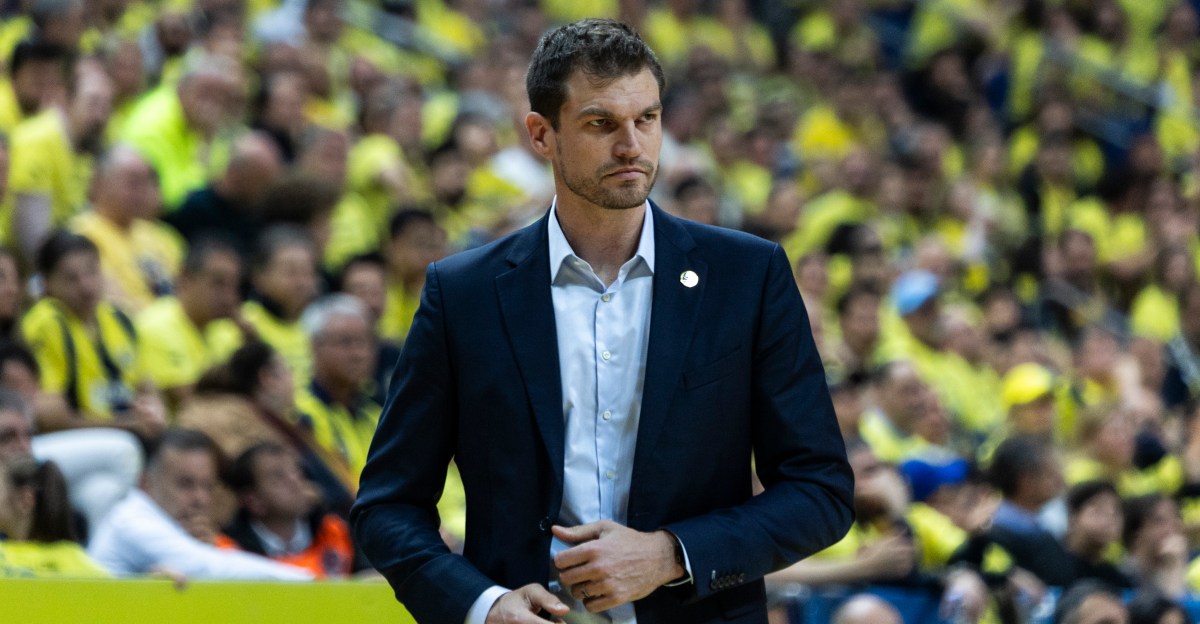
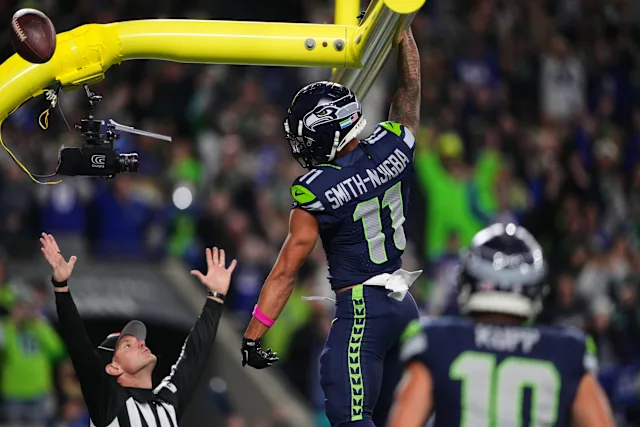
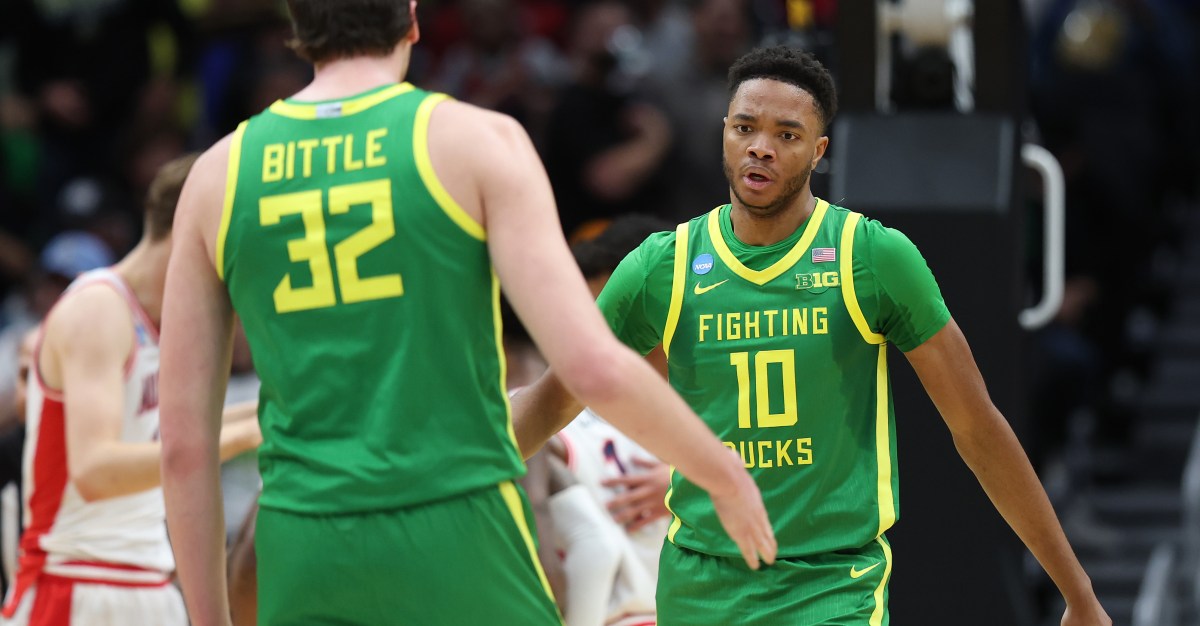
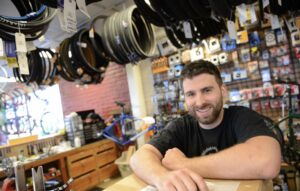





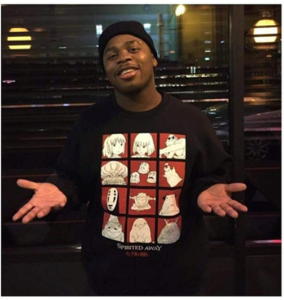

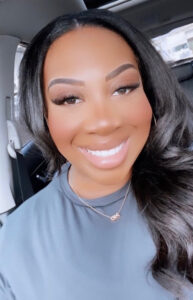
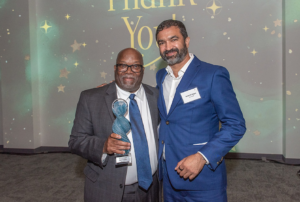
Post Comment